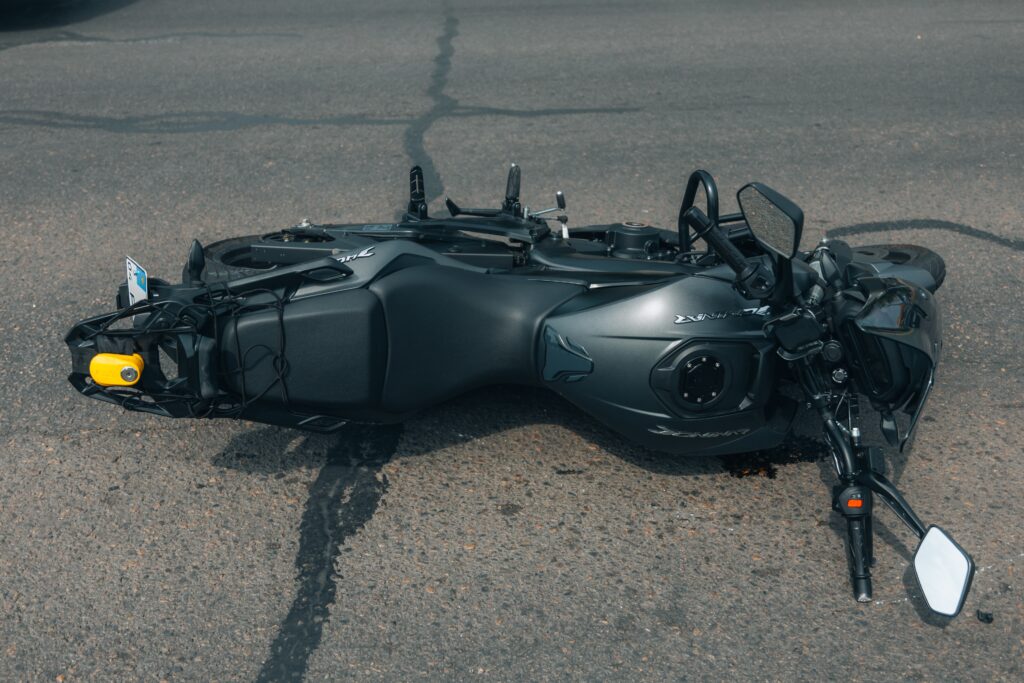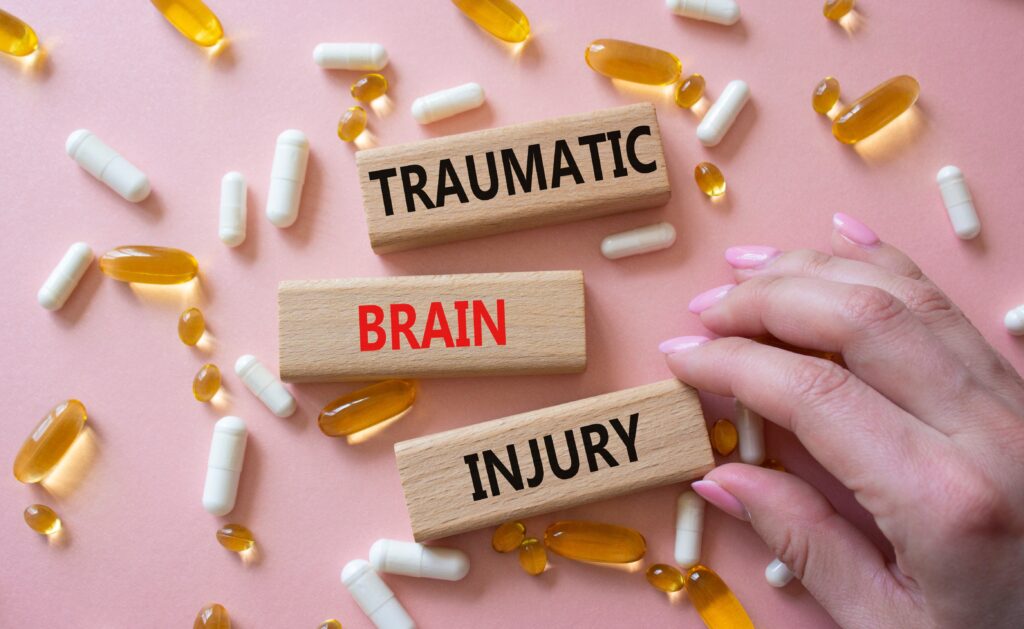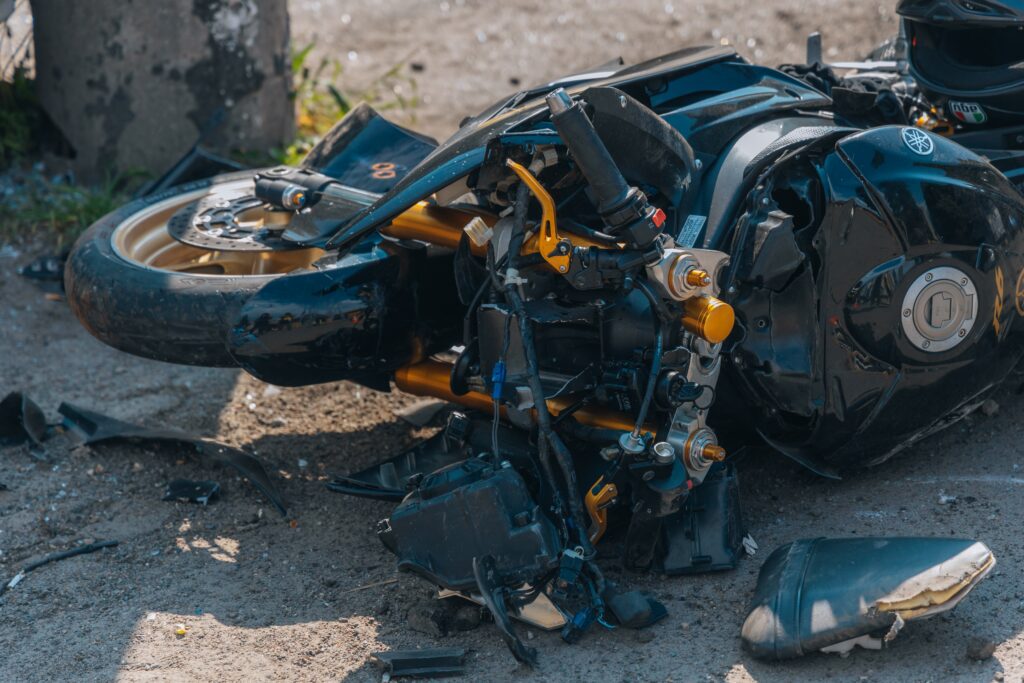Motorcycle crashes frequently happen when drivers become distracted or violate other traffic laws. Following a motorcycle accident, it is important that you seek ongoing medical treatment for your injuries and contact a skilled motorcycle accident attorney in Omaha. Your lawyer can handle the process for you while you focus your attention on recovering from your injuries. Your attorney will do everything possible to maximize your monetary recovery so that you become whole again.
How Do Motorcycle Accidents Happen?

Motorcycle accidents often occur because of the negligence of other drivers. One of the most common causes is when drivers fail to see motorcyclists. Motorcycles are smaller than other vehicles on the road and can easily slip into a car’s blind spot. When drivers do not check their blind spots or use their mirrors properly, they can merge into a lane already occupied by a motorcyclist, leading to a collision.
Another frequent cause is distracted driving. With the prevalence of smartphones, many drivers are distracted with texting, talking, or using apps while driving. These distractions take their eyes off the road, making them less likely to notice a motorcycle until it is too late to avoid an accident.
Speeding is another significant factor. When a car is speeding, it reduces the driver’s reaction time and increases the severity of any impact. When a speeding vehicle strikes a motorcyclist, the cyclist is at a much higher risk of serious injury or death.
Failure to yield is also a common cause of motorcycle accidents. Many drivers do not give motorcyclists the right-of-way at intersections or while merging. This can lead to dangerous situations where a motorcyclist is forced to take evasive action, often resulting in a crash.
Driving under the influence of alcohol or drugs significantly impairs a driver’s ability to operate a vehicle safely. Intoxicated drivers have reduced reaction times, impaired judgment, and diminished motor skills, all of which contribute to a higher likelihood of causing an accident involving a motorcycle.
Tailgating, or following too closely, is another common cause of motorcycle accidents. Motorcycles can stop more quickly than cars, and if a driver is too close behind, they may be unable to stop in time to avoid a collision if the motorcyclist brakes suddenly.
Finally, improper lane changes or not signaling when turning can lead to motorcycle accidents. Drivers who change lanes without signaling or checking for motorcycles can easily cause a crash. Motorcyclists are more vulnerable in these situations due to their smaller size and lower visibility.
Steps To Take After a Motorcycle Crash
After suffering injuries in a motorcycle accident, taking the right steps can significantly affect your recovery and your ability to secure compensation. Once you have left the scene and sought initial medical treatment, here are the most important steps to follow:
- First, follow your doctor’s treatment plan carefully. This means attending all follow-up appointments, undergoing recommended tests or procedures, and taking prescribed medications. Keeping up with your medical treatment not only aids in your recovery but also documents the extent and effects of your injuries, which is crucial for any legal claims.
- Next, gather and preserve evidence related to the accident. Collect any medical records, police reports, and witness statements you can obtain. If possible, take photos of your injuries and any damage to your motorcycle. Also, keep a journal detailing your physical pain, emotional distress, and how the injuries affect your daily life. This can serve as valuable evidence when proving your case.
- Notify your insurance company about the accident promptly. Provide them with all necessary information and be honest about the extent of your injuries and damages. However, be cautious in your communication and avoid giving recorded statements or signing any documents without consulting a motorcycle accident lawyer, as these can be used against you later.
- Consult with a personal injury attorney who regularly handles motorcycle accident cases. An experienced attorney can explain your rights, navigate the legal process, and deal with insurance companies. They can also gather evidence, negotiate settlements, and, if necessary, represent you in court.
- Avoid discussing the accident or your injuries on social media. Insurance adjusters and defense attorneys often scrutinize social media profiles for evidence that can undermine your claim. Even seemingly harmless posts can be taken out of context and used against you.
- Keep all receipts and records of expenses related to the accident. This includes medical bills, repair costs for your motorcycle, and other out-of-pocket expenses like transportation to medical appointments. These records are essential for calculating the total amount of compensation to which you may be entitled.
- Finally, be patient and stay informed about your case. Legal processes can be lengthy, and staying in touch with your motorcycle accident lawyer for updates is essential. Understanding each step and being proactive can help ensure the best possible outcome for your case.
Common Injuries in Motorcycle Crashes
Motorcycle accidents often result in severe injuries due to the lack of protection compared to cars. The following are some of the most common injuries that victims of motorcycle accidents may suffer:

- Traumatic Brain Injuries (TBIs): Even with a helmet, motorcyclists are at high risk of head injuries. A TBI can range from a concussion to severe brain damage, leading to long-term cognitive, physical, and emotional impairments. Symptoms may include headaches, confusion, memory loss, and changes in behavior.
- Spinal Cord Injuries: These injuries can result in partial or complete paralysis, depending on the severity and location of the damage. Spinal cord injuries often require extensive medical treatment and rehabilitation and can lead to a lifetime of physical challenges.
- Fractures and Broken Bones: The force of a motorcycle accident can easily cause fractures. Commonly broken bones include the legs, arms, wrists, and ribs. These injuries often require surgical intervention and lengthy recovery periods.
- Road Rash: When a motorcyclist slides across the pavement, they can suffer severe abrasions known as road rash, which can lead to serious complications like infections, nerve damage, and permanent scarring.
- Internal Injuries: The force of a collision can cause internal bleeding and damage to various bodily organs. Internal injuries are particularly dangerous because they are not always immediately apparent and can be life-threatening without prompt medical attention.
- Soft Tissue Injuries: These injuries affect muscles, ligaments, and tendons. Common soft tissue injuries include sprains, strains, and tears, which can cause significant pain and limit mobility. Recovery may require physical therapy and time away from normal activities.
- Facial Injuries: Motorcyclists are at risk of facial injuries, including fractures, dental damage, and severe lacerations. These injuries can lead to disfigurement and require reconstructive surgery and long-term dental care.
- Psychological Trauma: Beyond physical injuries, motorcycle accidents can result in significant psychological repercussions. Victims may experience post-traumatic stress disorder (PTSD), anxiety, depression, and other mental health issues requiring professional treatment.
Motorcycle accident injuries can be devastating and life-altering. The recovery process often involves extensive medical care, rehabilitation, and, in many cases, ongoing support.
Successfully Proving a Motorcycle Accident Case
Proving the legal elements of a motorcycle accident case requires demonstrating that another party’s negligence caused the accident and resulted in your injuries. The following is a breakdown of the key legal elements and the types of evidence necessary to build a strong case:

- Duty of Care: The first element involves showing that the other party owed you a duty of care. This means they had a legal obligation to act reasonably and avoid causing harm. All drivers on the road have a duty of care to drive safely and follow traffic laws.
- Breach of Duty: You must prove that the other party breached this duty of care. This can be through speeding, running a red light, distracted driving, or failing to yield. Evidence to support this includes:
- Police Reports: These official reports detail the circumstances of the accident and any citations issued.
- Witness Statements: Testimonies from people who saw the accident can provide an objective account of the events.
- Traffic Camera Footage: Video evidence from nearby cameras can show the other party’s actions leading up to the accident.
- Causation: Next, you need to demonstrate that the breach of duty directly caused the accident and your injuries. This element connects the other party’s negligence to the harm you suffered. Key evidence includes:
- Accident Reconstruction: An accident reconstruction consists of an expert analysis of the accident scene to determine how it occurred.
- Medical Records: Medical records are documentation from healthcare providers linking your injuries to the accident.
- Expert Testimony: Specialists in fields like biomechanics or medicine can explain how the accident caused specific injuries.
- Damages: Finally, you must show that you suffered actual damages as a result of the accident. Damages can be economic, such as medical bills and lost income, or non-economic, like pain and suffering. Evidence for this includes:
- Medical Bills: Medical bills are retailed records of all medical expenses related to your injuries.
- Pay Stubs and Employment Records: Pay stubs and employment records prove your lost income due to time off work.
- Personal Testimony: Personal testimony is your own account of how the injuries have affected your life, including pain, emotional distress, and loss of enjoyment.
Collecting and presenting this evidence effectively is vital for proving the legal elements of your case. A skilled motorcycle accident lawyer can gather and organize this evidence, negotiate with insurance companies, and represent you in court if necessary. By meeting these legal elements with strong evidence, your attorney can build a compelling case and increase your chances of securing fair compensation for your injuries.
Recovering Favorable Compensation for Injuries in a Motorcycle Crash
After a motorcycle accident, you may be entitled to various types of compensation to help you recover from your injuries and their effects on your life. Here are the most important types of compensation you can seek:
- Medical Expenses: This is often the largest part of a compensation claim. It includes all costs related to your medical treatment, both current and future. This can cover hospital stays, surgeries, doctor visits, physical therapy, prescription medications, and any necessary medical equipment like crutches or wheelchairs. If your injuries require long-term care or rehabilitation, those costs may also be included.
- Lost income: If your injuries prevent you from working, you can claim compensation for lost earnings. This covers the income you would have earned had you not suffered an injury. If your injuries result in long-term disability that affects your ability to work in the future, you can also claim for loss of future earnings or diminished earning capacity.
- Pain and Suffering: This type of compensation is for the physical pain and emotional distress that the motorcycle accident and your injuries caused. Pain and suffering can include chronic pain, mental anguish, anxiety, depression, and the loss of enjoyment of life. Calculating this type of compensation can be complex because it is more subjective but an essential part of your claim.
- Property Damage: If your motorcycle or other personal property was damaged or destroyed in the accident, you can seek compensation for repair or replacement costs. This also includes any personal items on your motorcycle, such as a helmet or riding gear.
- Loss of Consortium: If your injuries negatively affect your relationship with your spouse, you can claim for loss of consortium. This compensation is for the loss of companionship, affection, and support that can result from serious injuries.
- Punitive Damages: In some cases, if the other party’s actions were particularly reckless or malicious, you may be eligible for punitive damages. These damages intend to punish the wrongdoer and deter similar behavior in the future. However, punitive damages are less common and are awarded only in certain circumstances.

Contact an Experienced Motorcycle Accident Lawyer Today
If you suffered injuries in a recent motorcycle crash that a negligent driver caused, it is important that you seek out experienced legal counsel right away. A knowledgeable personal injury attorney in Omaha can handle every step of the process for you, including filing a claim on your behalf or successfully litigating your case through the court system to a favorable resolution.